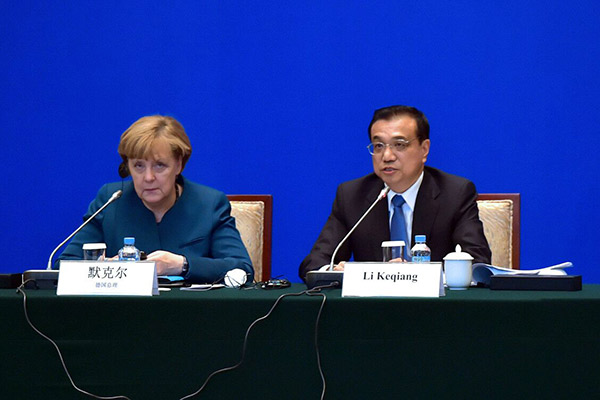
Chinese Premier Li Keqiang and German Chancellor Angela Merkel jointly attended a meeting of the China-Germany Council of Economic Advisers in Hefei, Anhui province, on Oct 30.
China welcomes German enterprises to expand their investment and enhance cooperation with Chinese companies, Premier Li said in his speech.
China will link its strategies of “Made in China 2025” and “mass entrepreneurship” with the German strategy of “Industry 4.0”, and enhance intellectual property protection, Premier Li said.
Although Chinese economic growth is slower now, domestic demand remains huge, and there is a large potential for development in the middle and western part of the country, Premier Li said, adding that German companies are welcome to invest in middle and western China.
The premier points out that the market of infrastructure construction is very large in developing countries, especially at a time when the world economy is growing slowly. China could cooperate with Germany in exploring a third market, which would be a win-win process, Premier Li said.
Merkel said that the two countries should enhance communications and take measures to enhance cooperation.
Germany would like to participate in the process of China’s deepening reform and economic restructuring, jointly develop China’s middle and western region, and become a good friend of China, Merkel said.
The German government welcomes Chinese companies to invest in Germany, and will aim to make it more convenient, for example by providing market access and visas, Merkel said.
During the meeting, top officers from the two countries’ large companies including XCMG, ZTE, Fosun, Siemens and Volkswagen addressed China-German cooperation in manufacturing, visa policy, fair competition, resolve of trade disputes, and so on.
After the meeting, the two state leaders witnessed the signature of 15 agreements in bilateral trade, investment, finance, urbanization and people-to-people exchanges.
